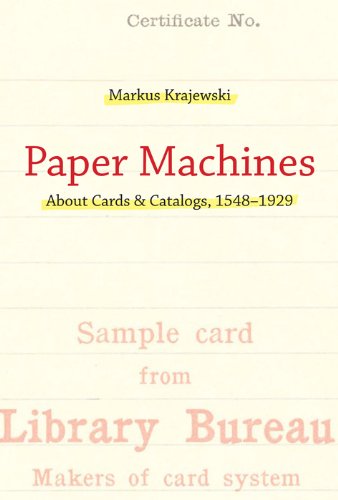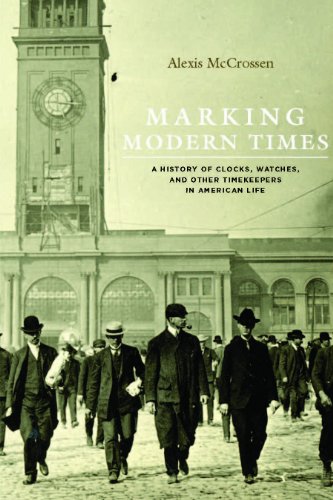
By Markus Krajewski,Peter Krapp
Read or Download Paper Machines: About Cards & Catalogs, 1548-1929 (History and Foundations of Information Science) PDF
Best history of technology & engineering books
Alexis McCrossen's Marking Modern Times: A History of Clocks, Watches, and PDF
The general public areas and structures of the USA are domestic to many millions of timepieces—bells, time balls, and clock faces—that tower over city streets, peek out from lobbies, and gleam in shop home windows. And within the streets and squares underneath them, males, girls, and youngsters put on wristwatches of every kind.
Get Technical Ekphrasis in Greek and Roman Science and PDF
Ekphrasis is time-honored as a rhetorical instrument for inducing enargeia, the shiny experience reader or listener is really within the presence of the items defined. This publication makes a speciality of the ekphrastic innovations utilized in old Greek and Roman literature to explain technological artifacts. because the literary discourse on expertise prolonged past technical texts, this booklet explores 'technical ekphrasis' in quite a lot of genres, together with historical past, poetry, and philosophy in addition to mechanical, clinical, and mathematical works.
Junkyards, Gearheads, and Rust by David N Lucsko PDF
What occurs to vehicles when they are retired yet sooner than they're processed as scrap? during this attention-grabbing heritage, David N. Lucsko takes readers on a journey of salvage yards and wrecked or differently out-of-service automobiles within the usa from the perspective of gearheads—the sizzling rodders, recovery hobbyists, highway rodders, and vintage vehicle devotees who reuse, repurpose, and repair junked automobiles.
Download PDF by Robin Hermann: Sächsisches Hüttenwesen: Schauplätze - Verfahren -
Das sächsische Hüttenwesen steht für eine jahrhundertelange culture. Seine Blaufarbenwerke, Saigerhütten und Argentanfabriken machten es weltbekannt. Das vorliegende Buch liefert einen kompakten Überblick über das historische Hüttenwesen in Sachsen. Neben einer Einführung in die technischen Grundlagen steht die Verhüttung von Silber-, Zinn-, Kupfer- und Kobalterzen im Mittelpunkt.
Additional resources for Paper Machines: About Cards & Catalogs, 1548-1929 (History and Foundations of Information Science)
Sample text
Paper Machines: About Cards & Catalogs, 1548-1929 (History and Foundations of Information Science) by Markus Krajewski,Peter Krapp
by Steven
4.1



